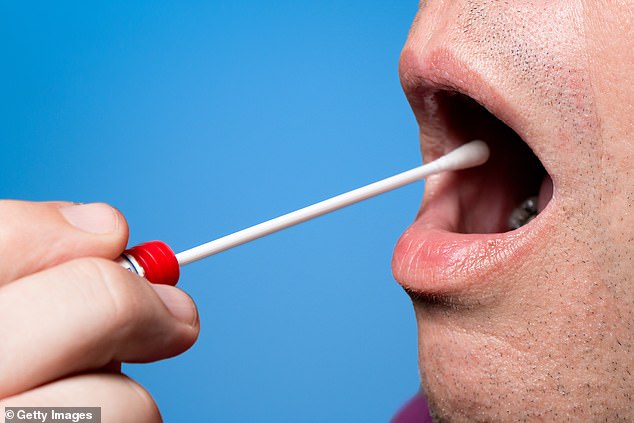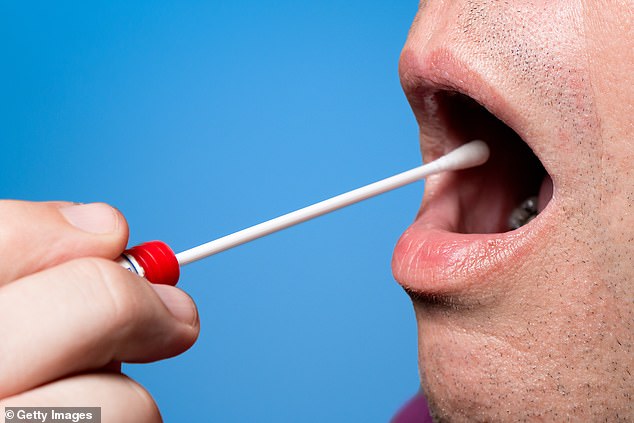A saliva smear can predict whether you will die within a year. Would you be brave enough to take the test?


It’s the only thing in life that’s guaranteed.
But knowing when you’re going to die remains a bit of a mystery.
Experts could now move one step closer to a ‘date of death test’ after discovering that a simple cheek swab can accurately estimate your risk of dying within a year by analyzing changes in DNA.
A team from Tally Health – a biotechnology company based in New York – has developed an epigenetic clock called CheekAge that is able to determine biological age from easily collected cheek cells.
Instead of the actual age of a person, this analyzes how old the cells are. Biological age can be affected by things like genetics, stress, sleep, diet, and smoking, and can be higher or lower than a person’s actual age.

Scientists have developed an epigenetic clock called CheekAge that is able to determine biological age from easily collected cheek cells
The scientists tested their method to see how well it predicted mortality from any cause in 1,513 women and men born in 1921 and 1936 who were followed throughout their lives.
Analysis showed that changes in DNA were significantly associated with mortality.
Participants in the highest CheekAge group were 148 percent more likely to die that year than participants in the lowest group.
Their method was even more accurate than other epigenetic clocks that analyzed blood, the team said.
Their findings were all retrospective, meaning their method was tested on participants who had already died.
Future research could include testing the method on people who are still alive, to see if it can accurately predict when they will die.
Writing in the journal Frontiers in Aging, the team said: ‘This implies that a simple, non-invasive cheek swab could be a valuable alternative for studying and monitoring the biology of aging.’
However, other experts cautioned that this method cannot be used to predict the day or even the year when someone will die.
Adele Murrell, professor of epigenetics at the University of Bath, said she sees no evidence that the CheekAge clock will be able to predict the day or even the year when someone will die.
Changes in DNA are theoretically reversible, she explained, meaning the method would only be useful for warning people that they may be headed for an early demise.
‘Since these changes are the result of lifestyle choices – smoking, weight gain, poor diet and lack of fitness – combined with underlying diseases – cancer, obesity, diabetes – all factors that are apparent without epigenetic testing, it is not yet clear whether patients It is they are more likely to change their lifestyle choices when confronted with the epigenetic clock data than when their GP warns them to do so,” she added.
Meanwhile, Dusko Ilic, professor of stem cell science at King’s College London, said: ‘In reality, such clocks provide probabilistic risk assessments rather than concrete predictions.
‘Highlighting mortality in this context has the potential to cause unnecessary fear and promote a fatalistic mindset in some people, rather than promoting useful insights into health and wellbeing.
‘A more nuanced approach would be to view CheekAge as a tool for assessing biological age and associated health risks, encouraging interventions aimed at prolonging healthy aging rather than focusing on mortality. ‘




